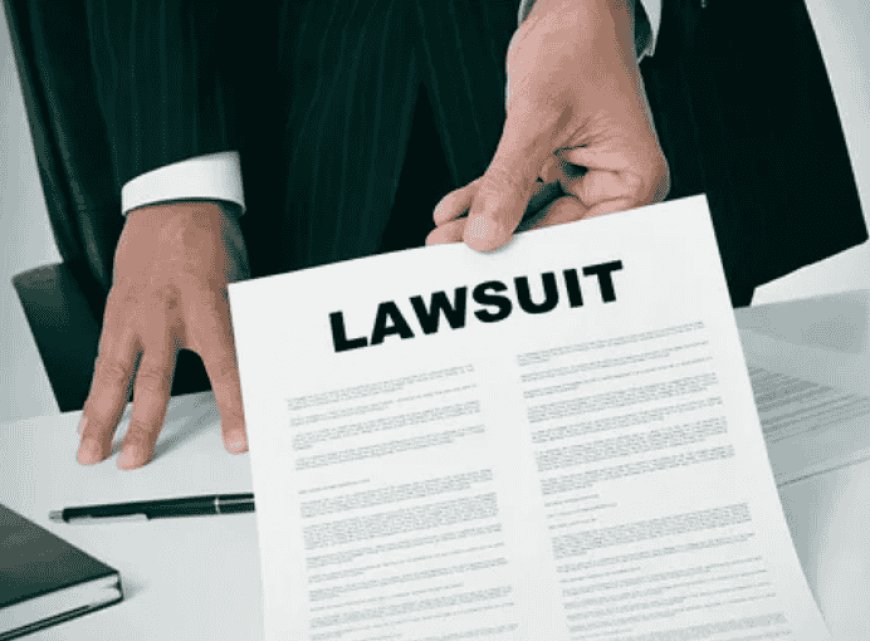Is Home Insurance a Scam? What USA Lawsuits Reveal

Home insurance is often marketed as a safety net, protecting homeowners from financial ruin in case of disasters like fires, floods, or theft. But is it really as reliable as it seems? Recent lawsuits in the USA have raised serious concerns about deceptive practices, claim denials, and questionable policy terms that leave homeowners vulnerable.
In this article, well examine whether home insurance is a scam by analyzing real lawsuits, industry practices, and legal outcomes. Well also explore how homeowners can protect themselves from unfair treatment by insurers.
1. The Promise vs. Reality of Home Insurance
Home insurance companies advertise peace of mind, but many policyholders find themselves fighting for fair compensation when disaster strikes. Common complaints include:
-
Delayed or Denied Claims Insurers often drag out the claims process or reject valid claims under questionable reasoning.
-
Fine Print Loopholes Many policies contain vague language that allows insurers to avoid payouts.
-
Underpayment Tactics Some insurers deliberately undervalue damages to minimize payouts.
Notable Lawsuits Exposing Home Insurance Practices
Several high-profile lawsuits have exposed troubling trends in the home insurance industry:
A. State Farms Alleged Fraudulent Denials (2022)
A class-action lawsuit accused State Farm of systematically denying legitimate claims after natural disasters. Homeowners alleged that the company used biased adjusters to undervalue damages, forcing them to accept lowball settlements or face prolonged legal battles.
B. Allstates "Good Hands" or "Empty Hands"? (2021)
Allstate faced multiple lawsuits for allegedly training adjusters to reduce payouts by blaming "pre-existing damage" even when homes were destroyed by covered events like hurricanes.
C. Farmers Insurances "Robbery by Paperwork" (2023)
Farmers was sued for burying policyholders in excessive documentation requests, making it nearly impossible to complete claims successfully. Many claimants reported being asked for unreasonable proof, leading to automatic denials.
These cases suggest that some insurers prioritize profits over policyholders, raising the question:Is home insurance a scam, or just a broken system?
2. Why Do Insurers Deny Claims?
Understanding why insurers deny claims can help homeowners avoid pitfalls. Common tactics include:
A. "Pre-Existing Damage" Excuse
Insurers frequently argue that damage existed before the covered incident, even when evidence suggests otherwise.
B. "Maintenance Neglect" Claims
If an insurer can argue that poor maintenance caused the damage (e.g., a leaky roof leading to mold), they may deny the claim.
C. Policy Exclusions Hidden in Fine Print
Many homeowners dont realize their policies exclude certain perils (e.g., floods, earthquakes) until its too late.
D. Lowball Settlement Offers
Some insurers pressure homeowners into accepting settlements far below repair costs, knowing many cant afford to fight back.
3. How to Protect Yourself from Home Insurance Scams
While not all insurers engage in bad practices, homeowners should take proactive steps to avoid being scammed:
A. Read Your Policy Thoroughly
-
Understand coverage limits, exclusions, and claim procedures.
-
Ask for clarifications in writing if anything is unclear.
B. Document Everything
-
Take photos/videos of your homes condition before and after damage.
-
Keep receipts for repairs and maintenance.
C. Get Multiple Independent Estimates
If an insurers estimate seems too low, hire an independent adjuster or contractor to assess damages.
D. Dont Accept the First Offer
Insurers often start with low settlements. Negotiate or consult a lawyer if necessary.
E. Know Your Legal Rights
-
Each state has insurance regulations and departments to file complaints.
-
If wrongfully denied, consider legal action or publicizing your case.
4. Is Home Insurance Worth It?
Despite these issues, home insurance is still essential for most homeowners. The key is choosing a reputable insurer and being prepared to fight for fair treatment.
Red Flags When Choosing an Insurer:
-
Too many negative reviews about claim denials.
-
Unusually low premiums (may indicate poor coverage).
-
Lack of transparency in policy details.
Best Practices for a Smooth Claims Process:
-
Report damage immediately.
-
Keep detailed records of all communications.
-
Seek legal help if the insurer acts in bad faith.
5. Conclusion: Vigilance is Key
Home insurance isnt inherently a scam, but the industry has well-documented issues with unfair claim denials and deceptive practices. By staying informed and proactive, homeowners can reduce the risk of being exploited.
If youve been a victim of wrongful claim denials, youre not alonemany have successfully fought back through lawsuits and public pressure. Always remember:your home is your biggest investment, and you deserve fair protection.
For more insights on insurance rights and consumer protection, stay tuned toFZDD.


































